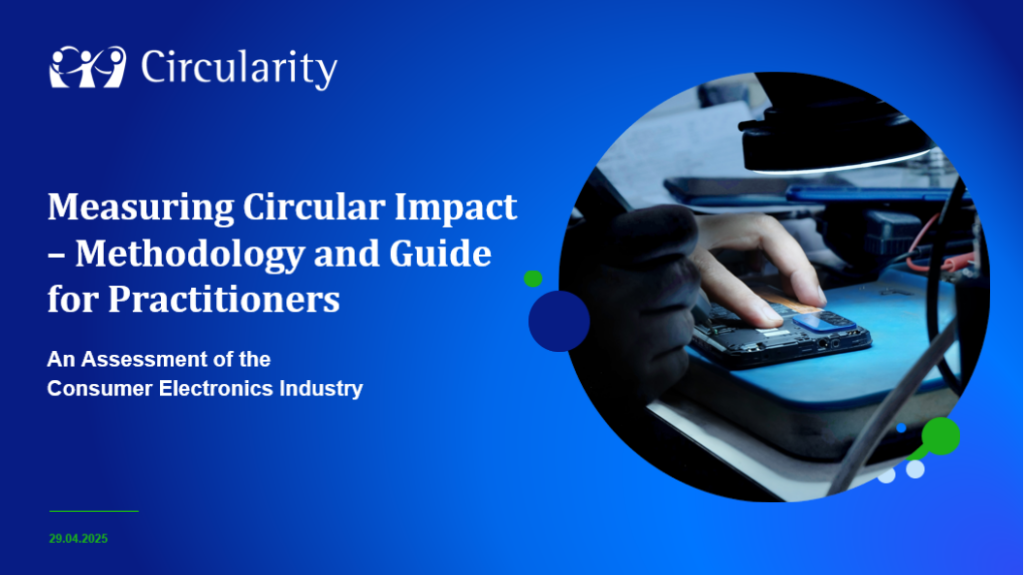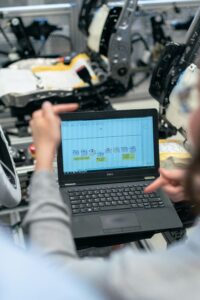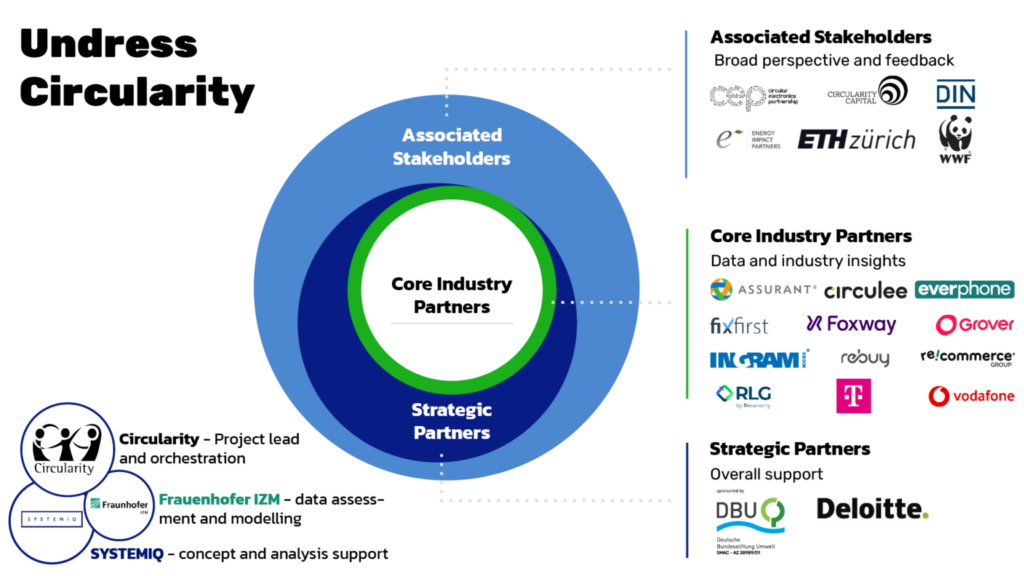Undress is a major collaborative industry project to assess the impact of circular business models.
Our new report „Measuring Circular impact“ is out today – Save your copy now.

Today on April 29th we releases the new report “Measuring Circular Impact”, developed in collaboration with leading partners from business, academia, and civil society. The launch webinar taking place at 3 – 4 pm CET introducing the pratical framework can be accessed below.
You want to check out our first report?
The market report on circular business models in electronics and the replay of our webinar can be found here – be prepared for the next one!
Circular economy business models in the electronics sector such as rental, second hand and repair are rapidly gaining importance as they aim to reduce resource consumption by optimizing product use. However, it remains difficult to quantify the actual positive impact of these models and there is currently no standardized approach.
The „Undress Project“, implemented and led by Circularity in collaboration with Systemiq and Fraunhofer IZM and 12 industry partners, and supported by Deutsche Bundesstiftung Umwelt and Deloitte, sets out to develop a methodological framework and practical guide to assess the environmental impact of circular business models for the case of consumer electronics. This project will provide much-needed key insights for the transition to a truly sustainable circular economy, with the electronics sector leading the way.

The project has a focus on providing clear steps for practical use and empowering industry practitioners to assess and optimize their business models.
12 core industry partners bring in proprietary data to support the creation of a framework based on actual flows and create unique insights into the actual implementation of circular business models.
Industry partners contribute deep industry experience and ensure practical relevance; a diverse group of associated partners ensure alignment with ongoing regulatory, standardization and assessment processes.
The project provides insights into the impact from changes in the access and use of products induced by different access options, thus complementing current impact assessments focused on product carbon footprints (PCF).
Consumer Electronics:
To assess different use patterns, the project focuses on frequently used devices (e.g., smartphones, laptops) and in-frequently used devices (e.g., gaming consoles, cameras) Both, the use of devices in the B2C context (individual users), and the B2B context (business users) is examined.
German Market:
The project sheds light on changes in the access and use of electronic devices induced by rental, second hand and repair business models in Germany. It includes relevant aspects of the typical life journey of devices beyond Germany as relevant parameters to the overall impact assessment (e.g., design and manufacturing; export and end-of-life).

Developed based on real data and industry insights, the project results are made publicly available in two reports: Market & consumer behaviour report (Q3 2024), and as key result, an industry report (Q1 2025), including:
Practical, step-by-step guide to assess the impact of particular circular business model options
Latest data on consumer behaviour on access options and device use for individual users (B2C) and in the business context (B2B)
Industry system map and key insights into industry dynamics and actors
Unique insights into circular business model practices and actual product flows across lifetime
Concrete case studies from pioneering companies to make results tangible
